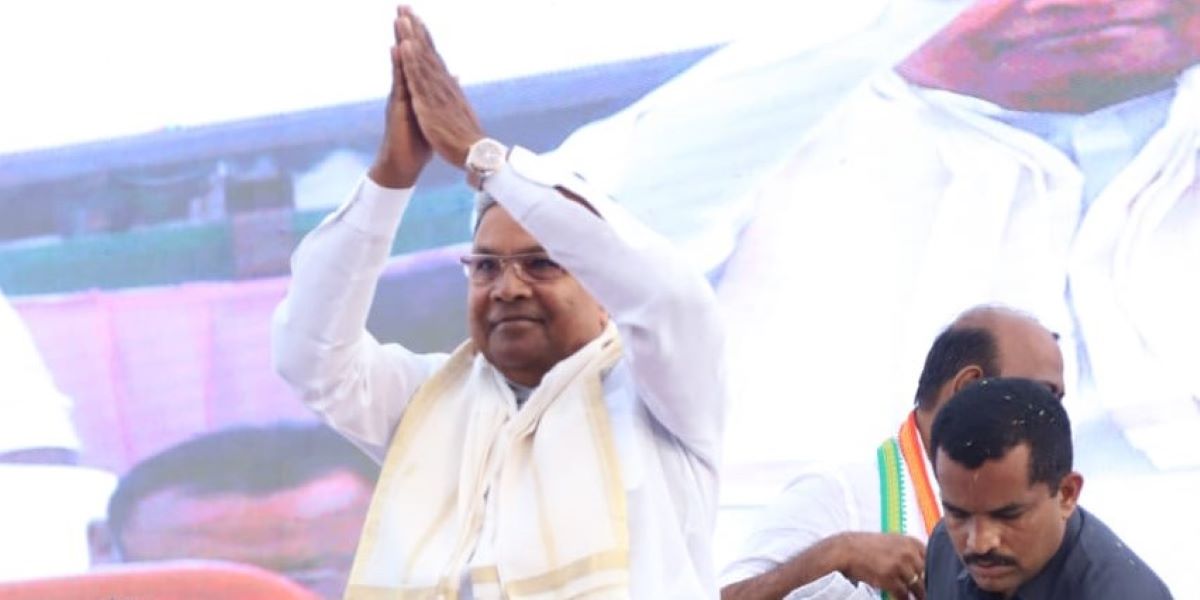The Karnataka Lokayukta filed an FIR in the MUDA scam on 27 September, naming Siddaramaiah, his wife BM Parvathi, brother-in-law Mallikarjuna Swamy, and Devaraju, from whom Swamy purchased land gifted to Parvathi
Published Nov 04, 2024 | 8:01 PM ⚊ Updated Nov 04, 2024 | 8:01 PM

CM Siddaramaiah to hold finance and administration classes for legislators (siddaramaiah/Twitter)
The Lokayukta police have issued a summons to Karnataka Chief Minister Siddaramaiah, asking him to present himself for an inquiry into the MUDA site allotment case on Wednesday, 6 November.
Siddaramaiah’s wife Parvathi BM, an accused in the case, was questioned on 25 October.
The MUDA (Mysuru Urban Development Authority) land transfer scandal is proving to be a significant challenge for Siddaramaiah.
The controversy centres on a 3.16-acre plot of land that was gifted to Parvathi by her brother in 2010. In 2022, MUDA, which took over the land, allocated 14 premium sites to her in the Vijayanagar locality as compensation, utilising a 50:50 formula for land acquisition intended for layout development.
As the details of this allocation became public, it sparked widespread outrage, particularly from the opposition Bharatiya Janata Party (BJP). The party took the issue to the streets and the legislature, launching a ‘padayatra’ campaign from Bengaluru to Mysuru, dubbed “Mysuru Chalo.”
The BJP is demanding Siddaramaiah’s resignation, alleging that he exerted pressure on officials to facilitate the site allocations.
Responding, Siddaramaiah categorically denied any wrongdoing, asserting that the site allocations were made during the BJP’s tenure in the state. This assertion has led to a war of words between the BJP and Congress, with both sides trading accusations and counterclaims.
The controversy gained further momentum when Karnataka Governor Thaawar Chand Gehlot intervened, based on a petition related to the case. He issued a show cause notice to Siddaramaiah, stating, “On perusal of the request, it is seen that the allegations against you are serious in nature and prima facie seem plausible.”
This notice drew criticism from Siddaramaiah’s council of ministers, who urged the governor to withdraw it. They described the notice as a “gross misuse of the constitutional office” and claimed it was part of a “concerted effort to destabilise a lawfully elected government for political considerations.”
The political drama escalated further when reports surfaced indicating that the Enforcement Directorate (ED) had registered an Enforcement Case Information Report (ECIR) against Siddaramaiah and several family members.
In a move that many viewed as a response to the growing scrutiny, Parvathi voluntarily returned the 14 allocated sites to MUDA on 1 October. Following her letter, MUDA officials conducted the necessary procedures and reclaimed the sites on 3 October.
In a bid to mitigate the fallout from the controversy, Congress leader K Marigowda also resigned from his position as the chairperson of MUDA on 16 October.
As the 6 November questioning approaches, all eyes will be on Siddaramaiah and how he navigates this significant challenge in his political career.
The outcome of this investigation could have lasting repercussions for both him and the Congress party in Karnataka, as they seek to maintain their hold on power amid rising opposition pressure.
(Edited by Ananya Rao)
